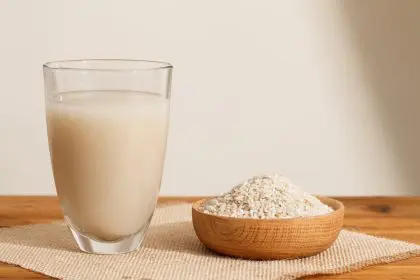You diligently take your calcium supplements. Maybe you even choose the calcium-fortified orange juice at breakfast. But what if certain foods in your daily rotation are secretly undermining all your bone-building efforts? While most of us focus on adding bone-strengthening nutrients to our diet, we rarely consider which common foods might be silently sabotaging our skeletal health.
Your bones aren’t static structures—they’re living tissue constantly being broken down and rebuilt throughout your life. This dynamic process can be heavily influenced by your dietary choices, often in ways that aren’t immediately obvious. Let’s unmask the surprising dietary culprits that might be compromising your bone density right under your nose.
The sodium situation you can’t afford to ignore
That extra shake of salt might cost you more than water retention. High sodium intake forces your body to excrete calcium through urine, essentially flushing away the very mineral your bones need most. This calcium leaching happens with every salt-heavy meal, creating a slow but steady drain on your skeletal resources that becomes increasingly significant over time.
The most dangerous sources aren’t just the obvious salty snacks. Processed foods like canned soups, frozen meals, and store-bought breads often contain shocking amounts of hidden sodium that add up quickly throughout the day. A single serving of canned soup can contain over 900mg of sodium—nearly half your daily recommended limit—setting up the perfect environment for calcium loss even if you’ve dutifully consumed your dairy products.
This sodium-calcium connection explains why countries with traditionally high-salt diets often show higher rates of osteoporosis despite adequate calcium intake. Your body prioritizes maintaining proper sodium-potassium balance over keeping calcium in your bones, making even calcium-rich diets ineffective if they’re also high in salt. This metabolic reality means that bone health requires not just adding calcium but also limiting the forces that pull it from your system.
Phosphoric acid’s sneaky bone impact
That refreshing cola might be satisfying your taste buds while subtly undermining your skeleton. Soft drinks containing phosphoric acid create a problematic shift in your body’s calcium-phosphorus balance. This acid forces your body to pull calcium from your bones to neutralize the acidity, essentially using your skeleton as a buffer system for dietary choices.
The double-trouble effect comes from both what these drinks contain and what they replace. Not only does the phosphoric acid actively pull calcium from bones, but each soda typically displaces potential calcium-rich beverages like milk from your diet. This simultaneous addition of bone-depleting compounds and subtraction of bone-building ones creates the perfect storm for accelerated bone density loss.
Research has connected the dots between cola consumption and decreased bone mineral density, especially in women. Regular cola drinkers show significantly lower bone density in the hip—a crucial area for fracture prevention—compared to those who avoid these beverages. The effect appears cumulative, meaning each daily soft drink incrementally increases long-term risk to your skeletal framework.
Caffeine’s complicated relationship with your skeleton
Your morning pick-me-up might be picking apart your bone density. Excessive caffeine consumption increases calcium excretion while potentially interfering with vitamin D metabolism—a double hit to your skeletal health. For every 100mg of caffeine consumed, you lose approximately 6mg of calcium through urine, creating a small but significant deficit that compounds with daily consumption.
The bone impact varies dramatically based on your overall calcium intake. If you consume adequate calcium throughout the day, moderate caffeine consumption shows minimal effects. However, for those already falling short on calcium, the caffeine-induced losses become much more significant, accelerating the bone density decline that naturally occurs with age.
The timing of caffeine consumption particularly matters for bone health. Consuming caffeine with calcium-rich foods partially offsets the calcium-leaching effect. However, many people drink coffee or tea first thing in the morning on an empty stomach, creating the perfect condition for maximum calcium loss. This common habit creates a daily window of increased bone vulnerability that many never connect to their brewing routine.
The protein paradox you never considered
The high-protein diets currently trending for weight loss might have unexpected skeletal consequences. While protein is essential for bone matrix formation, excessive animal protein intake creates an acid load that your body must neutralize—often by pulling calcium from your bones. This metabolic response explains why countries with the highest animal protein consumption often have higher rather than lower rates of osteoporosis.
The source of your protein significantly impacts this effect. Animal proteins, particularly red meat, produce more acid during metabolism compared to plant proteins. This higher acid load requires more calcium to be pulled from bones for neutralization, creating a net calcium loss despite the protein’s importance for bone structure. The balance becomes increasingly crucial as high-protein diets gain popularity.
The real solution isn’t eliminating protein but balancing it with alkaline foods. Fruits and vegetables provide compounds that neutralize dietary acid load without depleting bone calcium. This explains why Mediterranean and Asian diets, which feature moderate protein intake alongside abundant plant foods, are associated with better bone health than typical Western diets high in animal protein and low in fruits and vegetables.
Wheat’s surprising connection to bone fragility
That innocent sandwich might impact more than just your waistline. For those with gluten sensitivity or celiac disease, wheat consumption can significantly undermine bone health through decreased nutrient absorption. Even mild gluten sensitivity can impair the absorption of calcium, vitamin D, and magnesium—all crucial players in maintaining strong bones.
The inflammatory response triggered by gluten in sensitive individuals creates a cascade of effects that extend to skeletal health. Chronic inflammation interferes with proper bone remodeling, shifting the balance toward bone breakdown rather than formation. This inflammatory state essentially accelerates the aging process of your skeletal system, potentially leading to premature bone density loss decades before it would naturally occur.
The most concerning aspect is that many people with gluten sensitivity remain undiagnosed, experiencing subtle nutrient malabsorption that silently impacts bone health for years before more obvious symptoms emerge. This hidden connection makes wheat products a stealth contributor to bone fragility for a significant portion of the population who may never connect their dietary choices to their skeletal wellness.
Understanding these hidden dietary drains on your bone health empowers you to make more informed choices. Rather than simply adding calcium, consider which foods might be undermining your bone-building efforts. Small adjustments to reduce these skeletal saboteurs can have profound effects on maintaining the strength and resilience of your bones for decades to come. Which of these bone-depleting foods might be affecting your skeletal health?














